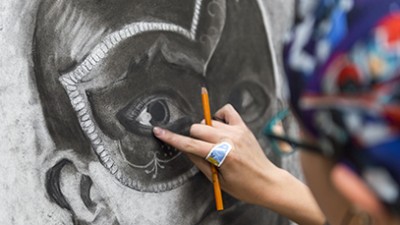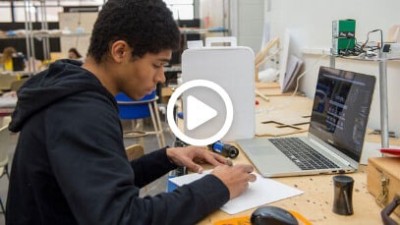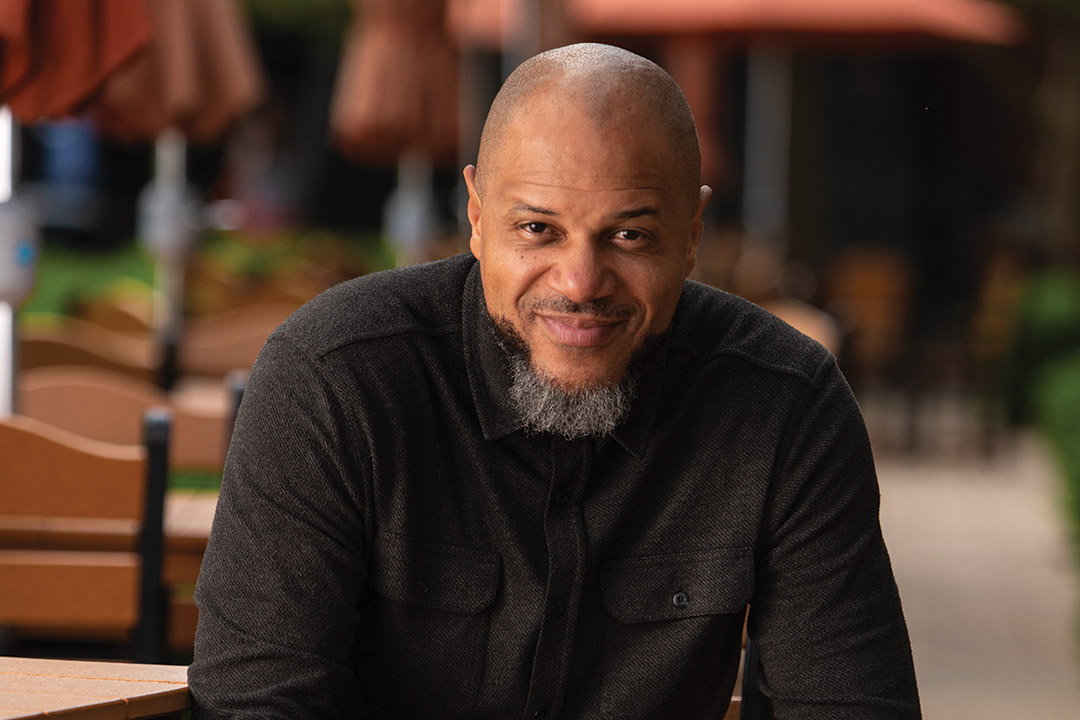Facing fear of failure leads to success for graphic design alumnus
Scott Hamilton
Tech engineer Don Charlton ’99 (graphic design) says RIT gave him the courage to tackle any digital problem through research and design.
Don Charlton ’99 (graphic design) came to RIT with just two suitcases, and one of them broke before he even got to campus. Still, he was excited to leave his small town outside of Pittsburgh and dive into the world of design. At the time, he likely didn’t anticipate his degree would lead him to the tech industry.
In 2009, Charlton founded JazzHR, the first widely adopted start-up recruiting solution in Silicon Valley. JazzHR served many big-brand companies at the early launch stage, including Instagram, Dropbox, Uber, Barack Obama for America, and others.
“For my first company, I was interested in finding a problem that wasn’t yet being solved, and that’s how I found the recruiting industry,” said Charlton. “My company pioneered a lot of the software that companies like Zip Recruiter use today.”
He sold JazzHR in 2021 for $180 million. Now, he works as a tech entrepreneur and investor in Atlanta and is building a new company called Quicki, an async video networking platform.
Charlton says the most valuable lesson he learned at RIT was to embrace the possibility of failure. However, he didn’t learn this in the classroom, but on the basketball court. Charlton planned to try out for the RIT basketball team but withdrew halfway through because he didn’t want to risk being cut.
“Four months after that, I was playing basketball with the guys on the team and I was actually better than a lot of them. If I had stuck it out and worked past that fear, I probably would have found success. It’s a lesson I carried with me into entrepreneurialism,” said Charlton.
Remaining strong in the face of failure was key to the success of JazzHR. During a critical point in the company’s growth, when he had almost 200 employees and limited cash available to keep things running, he was faced with a difficult decision.
“I had talked to 30 investors and they all said no. I wanted to quit and give everyone three months of severance because I didn’t want to risk the embarrassment of having to tell everyone that they’re suddenly out of a job,” said Charlton. “But I remembered that lesson and told myself that I have to be willing to risk the worst possible scenario, because success is often found in the space between when you want to quit and the moment you actually fail. Thankfully, we ended up raising $15 million and the rest is history for the business.”
Charlton believes most entrepreneurs have an innate outlook on the world that pushes them to dive head-first into the unknown and a dedication to see their ideas through despite any obstacles. His advice for budding entrepreneurs is to focus on the future and to not let anyone, even yourself, hold you back.
“The greatest and biggest companies of the world aren’t building something that makes obvious sense today; they’re building something that’s going to make obvious sense tomorrow,” said Charlton.








